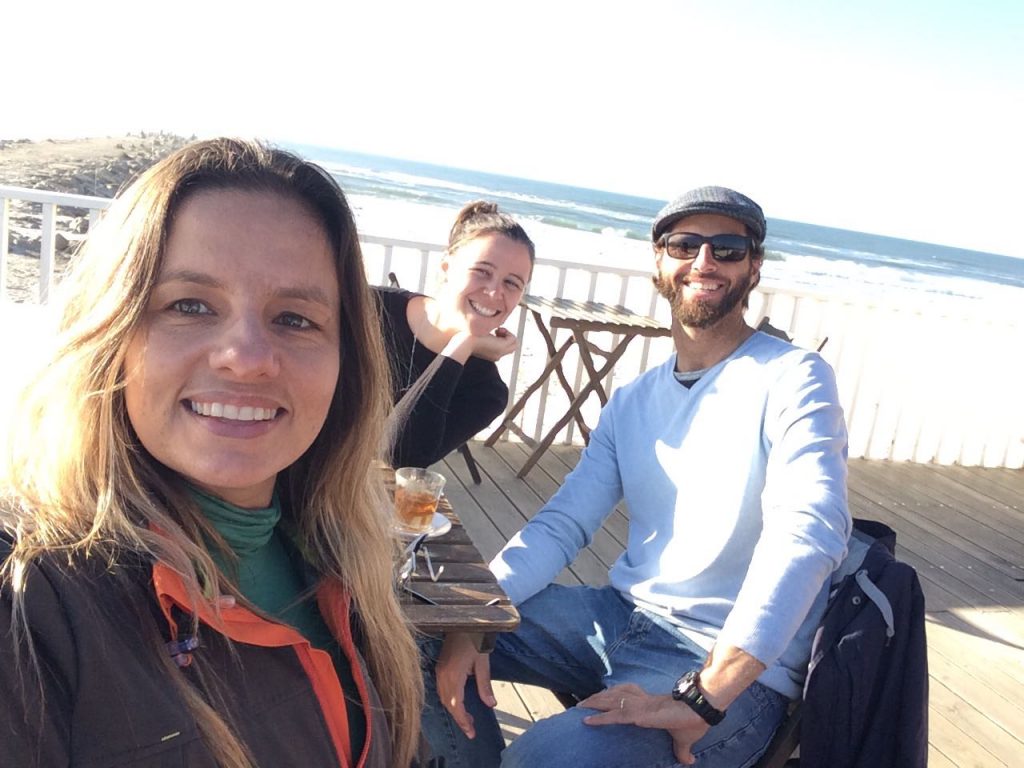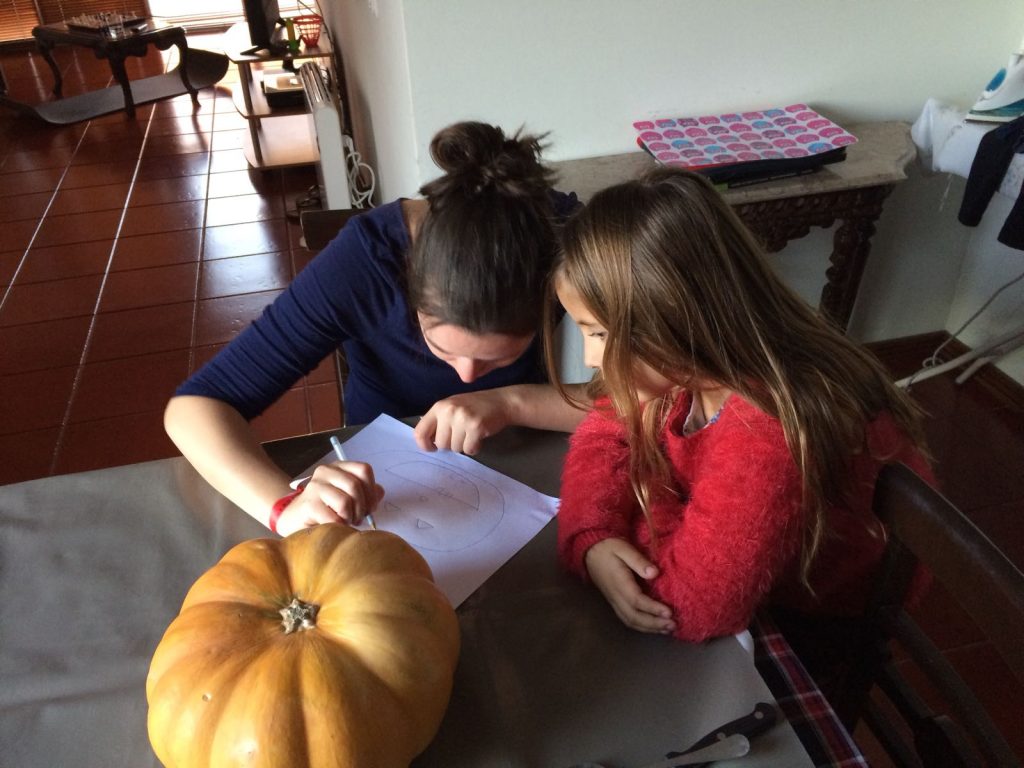
Staying with someone you met on a train is brave…hosting them is even braver.
I tend to have a bad habit of meeting the best people on trains. What started off as a desperate plea for help from a slightly lost tourist on a train from Munich became the start of a conversation with Tiago, a sports education professor from Brazil. After an hour of describing the surfing conditions in his new home of Aveiro in Portugal, Tiago immediately hooked me on the idea of Portugal, and wrote down his contact information before I had time to hesitate, inviting me to visit. It had never occurred to me to take him up on the offer until I realized I would be there, and could take some time for surfing. With an email titled “We met on a train in Munich…” I was surprised that three months later not only did he remember me, but insisted I visit him and his family without hesitation.
As I met Tiago and Andrea at the train station, they greeted me with such eagerness, smiling every chance they got, listening to my every word. The evening was perfect, with great food, and time with their energetic daughter and Andrea’s unreasonably sweet teenage son. There was one catch: Tiago was an intermediate English speaker, but Andrea was just beginning to learn. As we sat at the table drinking wine, she took one look at me, tried to speak, but instead started to cry. I was so startled by this reaction, which I had never experienced before in my English teaching life working with learners. As she calmed down, she tried to say, “All I want is for my children to speak English, so they can do well in life.”
Unfortunately Andrea wasn’t wrong to think English could provide opportunities for her family. Despite Google Translate’s attempts to make language learning obsolete , there is still a need for it. My students in Cameroon learned this the hard way when they pitched their mobile app that they had worked months on for a regional competition, only to be disqualified by the judges because they had presented in French. “How will you manage to pitch your idea in Silicon Valley to the people there? They only speak English.”
Or my favorite English student in Moscow, Staz, the director of a major financial company in Russia whose company went global overnight. As a beginner in the language, he told me of his struggles to meet with the directors from the other banks, when all he could say over dinner was “How are you?”
Not only do many big industries speak English, but content online is over 30% English, where sites like Wikipedia and Twitter have half of their content in English as well. As the world becomes more global, and the need to communicate with others becomes more important, will more people be missing out? Or should we all be learning Chinese instead? I felt a sense of guilt: not only did I finance the majority of my life abroad one way or another through English language education, but I earned these jobs easily because I was a native English speaker. Where is the fairness in that?
Tiago, an academic doing research in physical education wanted nothing more than to follow his favorite scholar’s work to Bath in the UK, and to receive funding to work there. Some of the best universities and opportunities for him would be in English speaking countries, where his language level has to be advanced for him to even be considered for a position. If he could improve his language skills, just maybe the family could move to the UK for a year or so, but he would need to work hard to get to that level. We made an agreement for my five day visit: Tiago would help me improve my surfing, and in return I would help the entire family with their English.
Despite a few emotional moments with Andrea where communication got blocked, she soon realized that there were so many ways we could communicate without using language. She watched comforted as little Bianca carve a pumpkin with me, using her gestures and smiles to explain to me exactly what she wanted to do. And when Bianca shouted out “wonderful!” a word she had heard me say yesterday, she owned it, and her parents couldn’t have been happier, kissing her with glee as they marveled at her intelligence.

Pumpkin Carving, no language required
As Tiago and Andrea walked me to the train station, I felt a wave of emotions as we said goodbye. I couldn’t help feeling optimistic for them, and their determination to not only learn English, but to make their family succeed. Their power lied in kindness, which they expressed openly to everyone they encountered, including that crazy Californian girl on the train. As we hugged goodbye, I knew that being good people would help them one way or another, in the very least. If only language could easily translate like that.

